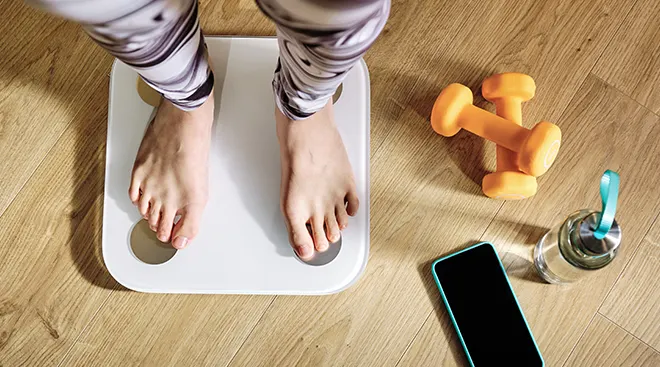Metabolic
Weight Loss Might Not Solve Infertility For Some Women

Historically, women who are obese and struggling with conception have been frequently told they should try to lose weight. Now, one study is finding weight loss may not actually have many—if any—benefits for fertility.
The study, called the FIT-PLESE study, was conducted across nine academic medical centers nationwide and looked at 379 women with obesity and unexplained infertility. The participants were divided into two groups, where one group was actively trying to lose weight with meal replacements, medications and increased exercise and one group was just exercising more without specific weight loss goals. After undergoing their respective programs, both groups completed three rounds of standard infertility treatments.
The women who actively tried to lose weight, on average, lost 7 percent of their body weight, while most women in the other group maintained their weight. The women who lost weight did see some health benefits, like decreased risks for health problems, including diabetes, stroke and heart disease. However, researchers found the weight loss didn’t make a significant impact on their chances of fertility and delivering a healthy baby.
“We have known for decades that obese women often have difficulty getting pregnant. For this reason, many physicians advise weight loss prior to conception. However, there are few studies that have addressed the issue comparing a healthy lifestyle—ie, exercise—vs. exercise plus weight loss,” researcher Daniel J. Haisenleder, PhD, of the School of Medicine’s Center for Research in Reproduction, said in a press release, adding, “Weight loss improved metabolic health in these subjects. Unfortunately the changes seen did not improve fertility. Infertility within this population remains an important health issue, and will require further studies to address the problem in the future.”
It’s important to note that the study is small and, as mentioned, more research is needed, but it’s encourage to see researchers trying to uncover other factors that might be contributing to infertility in these circumstances.
Please note: The bump and the materials and information it contains are not intended to, and do not constitute, medical or other health advice or diagnosis and should not be used as such. You should always consult with a qualified physician or health professional about your specific circumstances.





